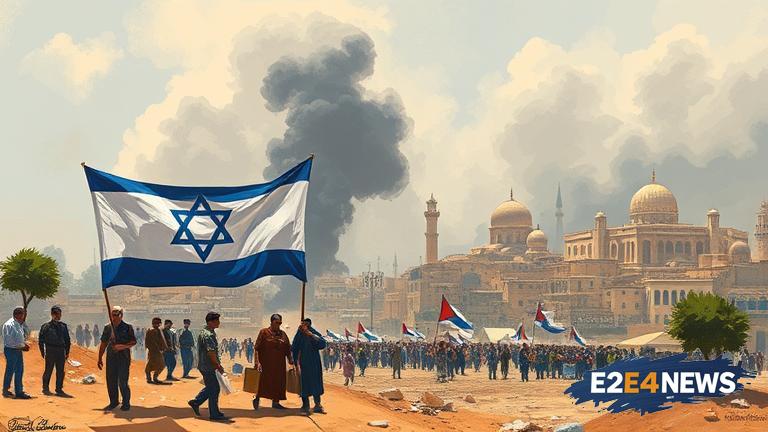The ongoing conflict in the region has resulted in a significant loss of life, including journalists, medics, and innocent civilians, particularly children. However, the Israeli public seems to be desensitized to these atrocities, with many remaining steadfast in their support for the government’s actions. The international community has condemned the violence, citing human rights abuses and a blatant disregard for international law. Nevertheless, the Israeli government continues to pursue its policies, seemingly impervious to external criticism. The situation on the ground is dire, with reports of starving children, destroyed infrastructure, and a general sense of hopelessness. Despite this, the Israeli public’s perception of the conflict remains largely unchanged, with many viewing it as a necessary measure to ensure national security. The role of the media in shaping public opinion has been significant, with some outlets accused of perpetuating a biased narrative that reinforces the government’s stance. The lack of empathy for the victims of the conflict is a disturbing trend, with some Israelis expressing a sense of detachment from the suffering of others. This has led to accusations of a ‘moral numbness’ that has become pervasive in Israeli society. The government’s rhetoric has been criticized for being inflammatory and divisive, contributing to a sense of polarization and entrenchment. The impact on the region’s stability has been significant, with the conflict showing no signs of abating. The international community has called for a peaceful resolution, but the prospects for a negotiated settlement seem remote. The humanitarian crisis is likely to worsen, with the potential for further escalation and bloodshed. The Israeli public’s response to the crisis has been shaped by a complex array of factors, including historical trauma, cultural identity, and a sense of existential threat. However, this does not excuse the lack of empathy and understanding for the plight of others. The need for a nuanced and balanced approach to the conflict is urgent, one that takes into account the complexities and sensitivities of the issue. The role of leadership in shaping public opinion and promoting a culture of empathy and understanding is critical. The Israeli government must be held accountable for its actions, and the international community must continue to apply pressure for a peaceful resolution. The fate of the region and its people hangs in the balance, and it is imperative that a solution is found before it’s too late. The conflict has also had a significant impact on the global community, with many countries expressing concern and outrage at the humanitarian crisis. The United Nations has been criticized for its inability to effectively address the situation, and the need for a more robust and coordinated international response is clear. The use of social media has also played a significant role in shaping public opinion, with many Israelis using platforms to express their views and mobilize support for the government’s actions. However, this has also created an echo chamber effect, where opposing views are marginalized and dismissed. The need for a more open and inclusive dialogue is essential, one that promotes understanding and empathy for all parties involved. The conflict is a stark reminder of the need for a more nuanced and balanced approach to international relations, one that prioritizes human rights, dignity, and the well-being of all people.





